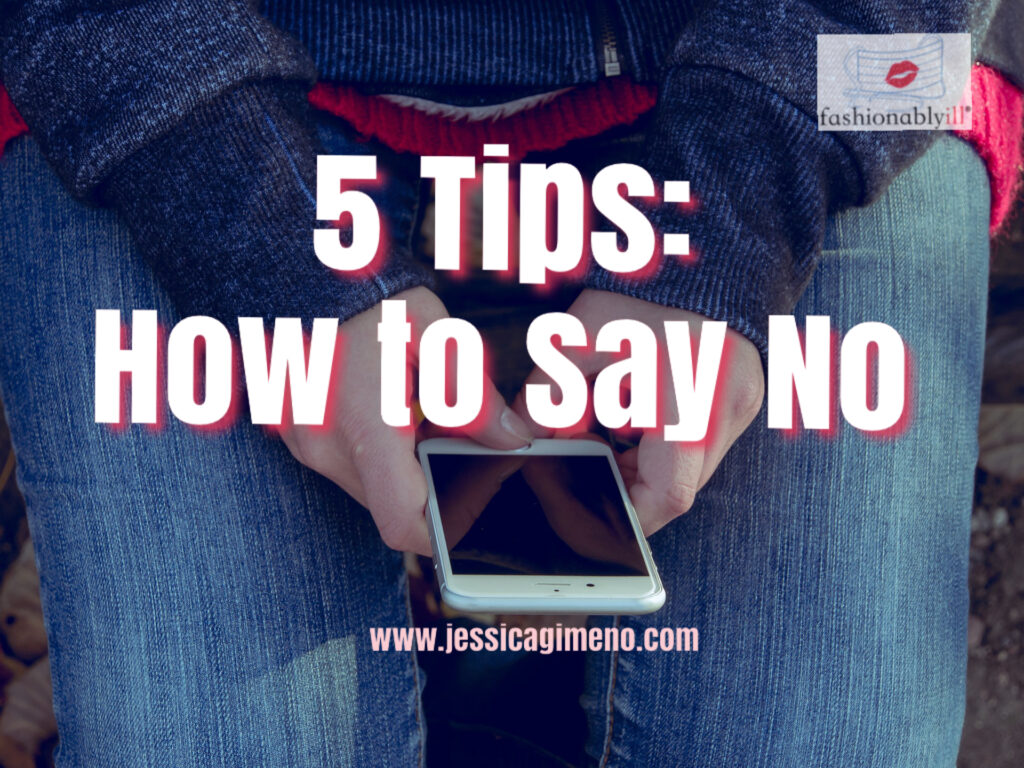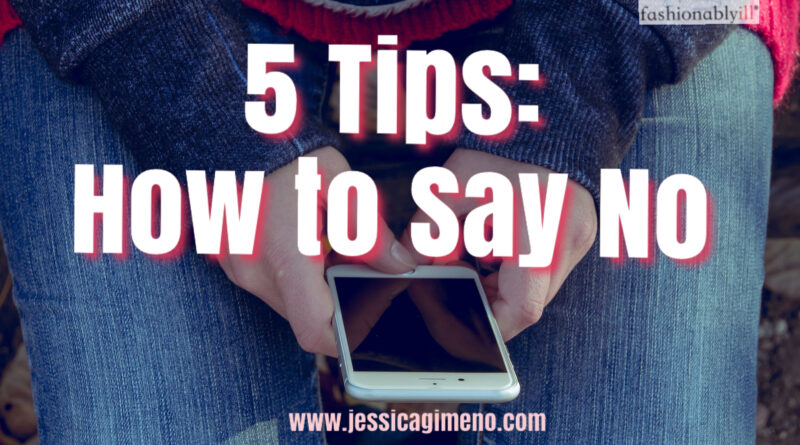5 Tips: How to Say No

Lots of people send me tweets about my TEDx Talk (“How to Get Stuff Done When You Are Depressed). They often quote lines in my speech back to me on Twitter with lovely gifs. One of the lines people tweet at me the most is, “If you can’t say no, then your yeses mean nothing.” This saying comes from retired Lutheran pastor Bege Wiegman, my friend Bret’s mom. (Bret and I did Speech Team together in college). The ability to say “no” is necessary for good mental and physical health. Recently, I realized many of us don’t know HOW to say no. What do you do when someone asks you to do something that you don’t have the time, energy, health, or other resources for? Many people avoid responding. They avoid answering those emails and texts because they don’t know how to answer and they don’t want to deliver disappointing news. Avoiding isn’t healthy for either party. At some point, we’ve all had our plans held up by another person’s indecisiveness.
Here are 5 few tips for saying “no”:
- Keep it brief – Saying “no” doesn’t mean you have to tell someone the story of your life. If the reason you are saying no is because of a problem that is too private to share or too complicated, leave your no to a few sentences. The level of my transparency is correlated to the intimacy of my relationship with that person.
- Treat others the way you want to be treated – Sounds simple, right? I was freaking out a few weeks ago after I got an email from a colleague, Stephanie, asking me if a reporter could interview me about my Medicaid story. I thought, Oh crap! I care deeply about this issue. We both do. How can I explain everything with filming the TV show pilot, my book, this big speech I have coming up, all these damn doctors appointments, and everything else in my life? I didn’t know how to respond. Then, I realized that by not responding I was holding up Stephanie’s plans. If I didn’t say no in a timely manner, she would not be able to look for other people who could be interviewed. Stephanie had a deadline; the reporter surely had a deadline. So I emailed Stephanie back a two-sentence “no.” I thanked her for thinking of me and said I would do it if I didn’t have so much on my plate right now. People are afraid that if they say “no,” they are being mean. But the truth is not saying anything and leaving someone hanging is much worse.
- Don’t overpromise – If you tell someone no, don’t follow it up by making a promise you are not sure you can keep. It’s human nature. We don’t like delivering bad news so we try to soften the blow by saying things like, “Sorry I couldn’t see you perform this week. I’ll be there next week.” But will you really be there next week? If the answer is more likely no than yes, don’t make the promise.
- Learn to use “not now” – Last week, a bunch of health advocates and I were working on something important. We needed a contact at a certain newspaper where we wanted to place an op-ed. I remembered I knew someone who worked there. I emailed him and asked if he could help us. He responded, “Can you remind me tomorrow?” Such a simple sentence. We did remind him and he did help us!
- Apologize when you don’t deliver – At some point, we all commit to doing something and don’t do it for a variety of reasons—many of them valid. I recently did that. I promised someone something and didn’t deliver. This is rare for me. I sent an apology email. I am not apologizing because I have bipolar disorder or myasthenia gravis or polycystic ovarian syndrome or psoriasis or any of my other illnesses. I am apologizing because I care about the other person. The act of apologizing makes me less likely to over-commit in the future.
Related: 5 Tips For Being Reliable When You Are Depressed




